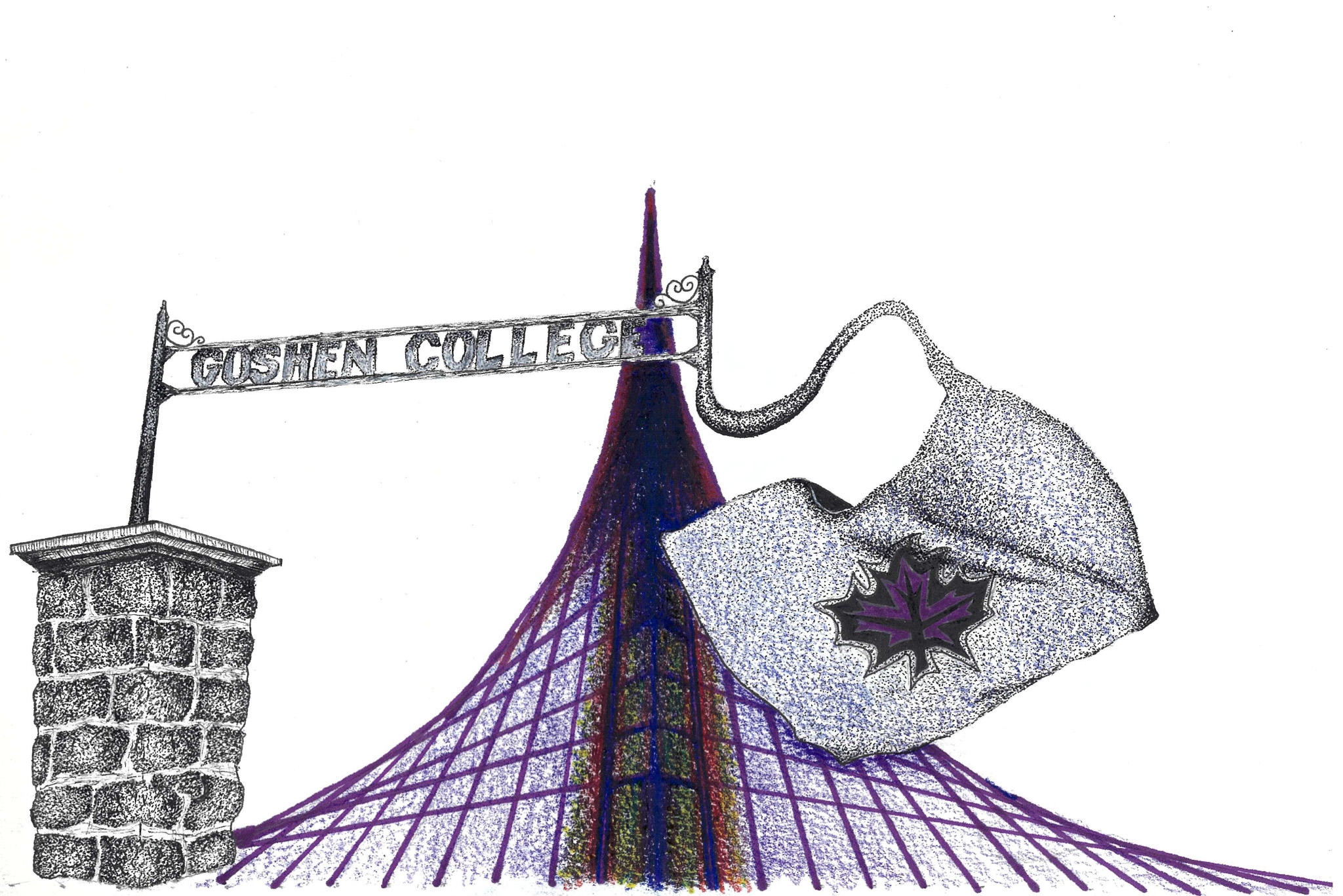Over two-thirds of the Goshen College teaching faculty approved a major curriculum addition two weeks ago. Beginning next fall, GC will have an honors program — all incoming freshmen with a high school GPA of 3.6 or above can apply by writing an essay.
“I’m quite excited,” said Kathy Meyer Reimer, professor of education and director of elementary education, who worked on the task force for the proposal. “I’m just delighted it got voted in.” In the Oct. 19 vote, 76% of all teaching faculty voted “yes” and 20% “no,” with 4% abstaining.According to an initial draft of the program description, the program involves 15 credit hours across four years for successful completion. As Ann Vendrely, vice president for academic affairs and academic dean, said, one central goal is to allow high-achieving students to “meet peers across different disciplines … so they can work together in a different way than they do in their own majors.”
The program will be open to next year’s incoming class, and will not be limited to those who apply as freshmen — eligible students can apply and join the program at any point. According to Vendrely, though, current GC students will not be able to participate.
The final proposal was the result of a yearlong discernment process from the task force. Though there was no official chair of the committee, it was facilitated by Vendrely and included five other members: Jessica Baldanzi, professor of English; Robert Brenneman, professor of criminal justice and sociology and director of CJRJ; Philipp Gollner, associate professor of history; Fritz Hartman, library director; and Meyer Reimer.
The group held multiple rounds of focus groups with both parents and students to determine not only whether GC should implement the program, but also what it would look like.
Jaelyn Amhdar, a junior exercise science major, was part of one of the focus groups and thinks the program “is a great idea.”
“They talked about leadership a lot” in the focus group, Amhdar said, “and I think that would be a great opportunity … and it’s a good idea to be with people who want to be engaged and conversing about [class topics] rather than just sitting there and not wanting to be there.”
The program, as it stands, begins in the student’s first year, with a three-credit Research and Writing course that exempts students from a GC writing requirement, and in their second year, students will take Honors Perspectives, a three-credit course that replaces a GC perspectives requirement.
Aside from these two courses, nothing else in the program fulfills other GC requirements — as Brenneman said, one fear when the program was instituted was that high-achieving students would be removed from GC Core classes.
The idea, he said, is that “you’re doing this because you want to do it, not because it’s the way you escape from the rest of the perspectives courses.”
Yet, simultaneously, the program had to be accessible to students that would be taking packed schedules, so those two courses replaced basic requirements.
The rest of the program is in addition to a standard course of study.
Honor students will add a “depth credit” to one course in their major, meaning that for four hours of credit, the student will do further research or activities for the course — literally, credit for going more in-depth.
This credit is student-initiated and must be approved by the professor.
Additionally, throughout their time in the program, students will take at least two one-credit seminars, which encompass a variety of activities.
Some potential seminars could include: a leadership development course with President Rebecca Stoltzfus based on a book study, a faculty-designed special research project, a group service project or some other interdisciplinary work — the “special topic” seminars would generally be offered during spring or fall break.
In the student’s junior or senior year, they will complete the program by taking Honors Capstone, a course that includes “common integrative reading in philosophy.”
As Vendrely put it, “it was important to embed [philosophy] there and make sure that the capstone represents the liberal arts.”
Finally, the program includes a few outside requirements that are not for credit.
Along with maintaining a 3.6 GPA (with a grace period of one semester before leaving the program), students must hold leadership positions for at least two semesters, such as acting as a teaching assistant, a club officer or a peer mentor.
The final requirement — and one of the largest — is that all honors students will complete a research project, either through Maple Scholars, Hickory Scholars, an honors capstone project or the national Research Experiences for Undergraduates program. That research will then be presented at the Academic Symposium.
“I love that one of the requirements is a research requirement,” Meyer Reimer said. But, she added, “my favorite thing about the program is the seminars — opportunities for discussion and thinking between students and faculty … I think those could turn out to be the jewels of the program.”
Meyer Reimer wasn’t always as positive about the program, though; when she joined the committee, she “was not sure that this was our highest priority,” and that “a number of faculty [were concerned] that this would be an elitist program” (though she was not as concerned about elitism).
But through focus groups and talking with students and parents, she realized that some of the strongest interest came from first-generation students.
“I thought to myself,” she said, “Isn’t that true of many areas of privilege? Those who have had more access sometimes take it more lightly than people who have really had to make some sacrifices.”
While Brenneman thought there was valid pushback, he described the elitism claims as “[getting] under my skin.”
He felt like there was a hesitancy to create “special experiences for academically motivated and highly curious students.
“But we do it in all kinds of other places for people who’ve put their time in and deserve to be pushed a little harder,” he continued, “on the basketball court, on the soccer pitch, in the music center, in the theater. We have tryouts, for crying out loud. Is that elitist?”
Amhdar agreed. “In the meeting, people were questioning that it would … separate people and create labels. But I didn’t think I really agreed with that. I understood what they were saying, but people are wanting to do better for themselves … they have this opportunity. Why not take it if you did well in high school?”
Not only will the program offer increased opportunities for students, but the hope from nearly all faculty interviewed is that it will increase enrollment — or, at a minimum, interest in GC.
“Admissions had a part to play in this,” Vendrely said, “because they get students that ask about [honors]. And they are happy to be able to tell them yes … it’ll be a good draw.”
Gollner agreed. “We’re losing students that really should be here — we need to have a structured experience,” namely, the honors program, “rather than just [saying], ‘trust us, we’re great.’”



